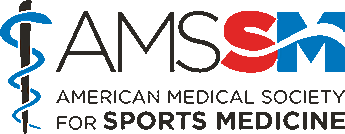|
COACH'S CORNER: RETURNING TO PLAY FROM CONCUSSIONS [Back]Coach’s Corner: Returning to Play from Concussions By Corina Martinez, PT, DPT, SCS, LAT, ATC Last issue we discussed concussions in general. Here we will build on educating coaches to better identify concussions and what information to share with both parents and athletes to safely manage concussions. We also share how athletes should progress through a return to play protocol.
1. Identifying Symptoms Concussions may occur after a direct hit to the head or a blow to the body that indirectly shakes the head. Symptoms of a concussion may include headache, dizziness, pressure in head, neck pain, noise/light sensitivity, feeling dazed or foggy, nausea, confusion, personality changes, balance problems or delayed responses. Recognizing these symptoms promptly is important to ensure proper management of concussions.
2. Acute Management If a concussion is suspected, the athlete must be removed from play and may not return to play that day. Symptoms should be monitored and if the symptoms progressively worsen, then the athlete should be taken to the emergency room for further evaluation. Athletes with concussions need to optimize their recovery by limiting cognitive and physical activities that may provoke or prolong their symptoms. Cognitive rest may involve staying home from school, limiting screen time (phones, TV, computers, tablets) and limiting reading activities.
3. Treatment Athletes with concussions should see a physician knowledgeable in concussion management to perform a full clinic evaluation. The physician can help develop a return to learn plan to help the athlete resume school activities without increasing symptoms. If necessary, the physician may refer for physical therapy treatments to help with the resolution of physical symptoms of dizziness or headache. Additionally, in most states, return to play (RTP) clearance must be provided by a physician. One way to find a sports-trained specialist in your area is to go to: www.amssm.org/find-a-doc
4. Return to Play The American Medical Society for Sports Medicine (AMSSM) has published a consensus statement that outlines a standard return to play protocol: Click here to view consensus statement.
5. Certifications CDC offers a free online training course for high school and youth coaches available on their website: http://www.cdc.gov/concussion/headsup/. Also, the American Academy of Neurology provides a Sports Concussion Toolkit on their website which offers resources on concussions for coaches and parents: https://www.aan.com/practice/sports-concussiontoolkit/ AMSSM Member Authors |

